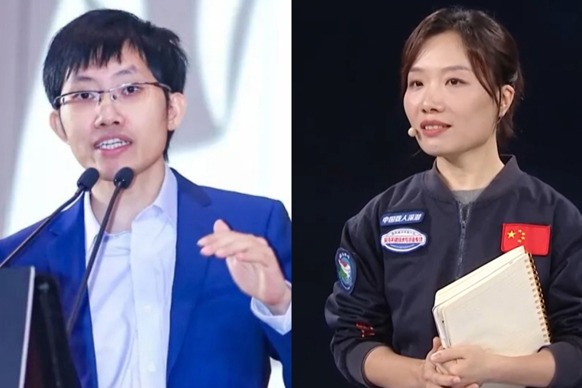Chinese market crucial for German firms, says economist
Xinhua | Updated: 2024-10-03 13:27

BERLIN - "German investments in China reached a new record in the first half of 2024, continuing the upward trend from 2023, when investment levels also set new benchmarks," Hermann Simon, a prominent German economist known as the father of the "hidden champions" theory, told Xinhua in a recent interview.
This year marks the 10th anniversary of the comprehensive strategic partnership between China and Germany. Simon said that the economic and trade relations between the two countries have deepened significantly while cooperation remains the dominant force, and both sides have demonstrated substantial potential for mutual learning and win-win outcomes.
"Business people make their decisions based on assessments of markets and costs," Simon said, adding that the continued increase in German investments in China has shown that "China is such an important market for the German companies that they keep investing there."
As an economist, Simon first introduced the concept of "hidden champions" -- small and medium-sized enterprises (SMEs) that lead global niche markets but are not widely known -- these companies achieve market leadership through focused strategies, ongoing internationalization, and continuous innovation.
"China's hidden champions have become one of the main competitors of German hidden champions," Simon noted. From his perspective, both German and Chinese economies are engineering-driven, as opposed to the consumer market-oriented economy of the United States. This makes Chinese and German firms natural competitors as well as significant partners.
Simon emphasized the critical role that business ecosystems play in the development of hidden champions. These ecosystems, formed through long-term cooperation and shared expertise among multiple companies, enable SMEs to accomplish complex products and systems that would be difficult to achieve independently. As a result, there is ample room for mutually beneficial cooperation between Chinese and German companies within this framework.
The growth of China's hidden champions is seen as part of its high-quality economic development path. Simon praised Chinese companies for their innovation and leadership in fields such as telecommunications and railway transportation.
"For me, patents are indicators of future industrial competitiveness. We see that with international patents, China has become number one. They just became one of the top ten in 2004, and since then, China has moved forward every year and is now number one, ahead of the United States," Simon said.
"China is considered a competence center," Simon noted, adding that in high-tech sectors, many German hidden champions have established research and development centers and artificial intelligence hubs in China, as they believe China has superior conditions for developing AI products and processes, viewing China as a future industrial incubator.
Simon said German companies are no longer just exporting products from their home country, but are establishing production facilities in China to achieve localized production. Chinese companies are adopting similar strategies, such as the Chinese battery manufacturer CATL and BYD, a Chinese carmaker, establishing production bases in Europe, reflecting the restructuring of global value chains.
China has emerged as the most important market for German "hidden champion" companies, reinforcing Simon's confidence in the future of the Chinese economy.
Highlighting the immense potential of the Chinese market, he said that while Germany currently hosts approximately 1,500 hidden champion companies, the largest concentration in the world, the number of such companies in China is rapidly growing.
These global market leaders, driven by entrepreneurship and a relentless pursuit of excellence, are poised to continue propelling China's economic growth, he added.
























